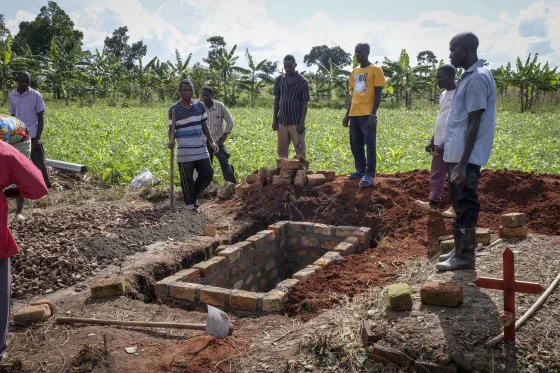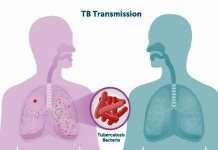
Four health workers have been identified to be among the 30 people that have died from the Ebola outbreak in Central Uganda.
Acting Director of Centre for Disease Control and Prevention (Africa CDC) Ahmed Ogwell, told journalists that the exposure of health workers was at the beginning of the outbreak when they did not know what they were dealing with.
He also dismissed the suggestion that the infection signaled the outbreak was getting out of hand.
Ogwell further updated the public that more than 860 active contacts have been listed and at least 78 per cent of them are being monitored, a situation that has almost doubled from a week ago.
The outbreak in Uganda has a 69 per cent case fatality rate, which Ogwell called “very high,” and there have been 43 confirmed cases already of which none so far have been in the capital, Kampala.
The Africa CDC says Uganda next week will host a ministerial meeting on the outbreak of the Sudan strain of the Ebola virus which has no proven vaccine and has caused alarm in the East Africa region.
“The three countries that suffered the devastating West Africa outbreak of Ebola in 2014 to 2016 were Sierra Leone, Guinea and Liberia.
“We have procured 20,000 test kits that should arrive early next week for the region, and it will ship stockpiles of personal protective equipment next week” Ogwell said.
Ebola can be difficult to detect at first because fever is also a symptom of malaria. Ebola, which manifests as a viral hemorrhagic fever, is spread through contact with bodily fluids of an infected person or contaminated materials. Symptoms include fever, vomiting, diarrhea, muscle pain and at times internal and external bleeding.
Uganda has had multiple Ebola outbreaks, including one in 2,000 that killed more than 200 people.










